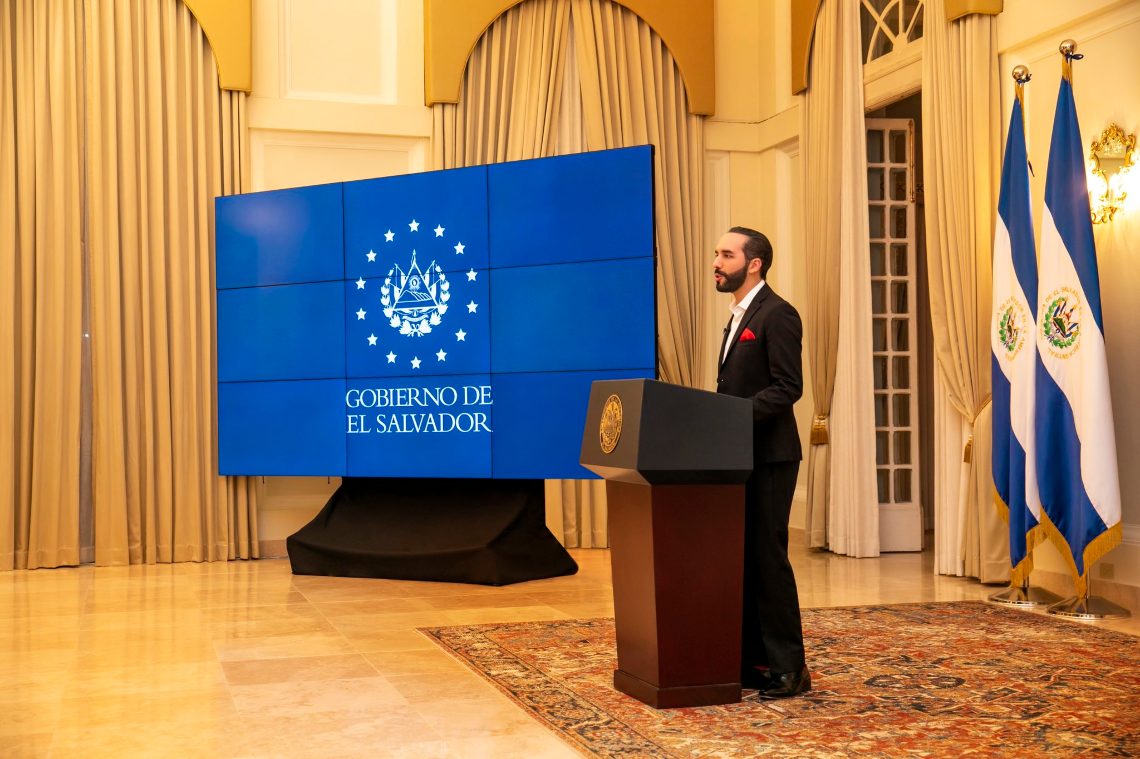Bitcoin will become legal tender in El Salvador as of 7 September.
This was announced by President Nayib Bukele during a press conference he held last night to explain the Ley Bitcoin, which makes bitcoin legal tender in the country and refute some of the news circulated in recent days that have thrown Salvadorans into confusion.
First, he wanted to clarify that the dollar will continue to circulate, definitively specifying that it is not true that bitcoin will entirely replace the other legal tender currency currently present in El Salvador.
The president was keen to stress that what happened in 2001, when the local currency was totally replaced by the US dollar and overnight bank accounts, salaries and pensions were converted to USD, will not happen.
In fact, it has been explicitly stated that the use of bitcoin will be optional: no one will be forced to accept bitcoin if they do not want to. Salaries and pensions will continue to be in dollars, bank accounts will remain in dollars and anyone receiving a payment in bitcoin will be able to convert it into dollars:
“Bank accounts will not convert to bitcoin as they did with dollarization when our bank accounts in colones were converted to dollars. Savings, checking accounts and cheques will continue to be in dollars.”
The president specifically added:
“If someone receives a payment in bitcoin, they can choose to automatically receive it in dollars, no one will receive bitcoin if they don’t want to.”
Law in hand Nayib Bukele also pointed out that the law does not require shops to display the Bitcoin price of goods sold. But if shopkeepers want to, they can do so.
Whereas as far as taxes are concerned, they can be paid in bitcoin. The president said in this regard:
“If you want to pay taxes you can do it in Bitcoin. Of course you can continue to pay in dollars; paying in bitcoin is an option for the Salvadoran people that does not affect anyone, on the contrary it is an option that Salvadorans have.”
Bitcoin at the moment will not even be used for accounting purposes. The dollar will continue to be used.
The press conference also served to explain that merchants are required to accept bitcoin, but there is a difference between “accepting” and “receiving”. This was in fact one of the most debated points: the obligation to accept bitcoin. But the president explained that you have to accept Bitcoin but you can receive dollars. A bit like when a European tourist pays with his credit card: the payment is in euro, but the merchant receives dollars. So again there is no obligation forcing people to receive bitcoin if they do not want to.
Chivo, El Salvador’s Bitcoin wallet with $30 in BTC
In order for Bitcoin to spread easily, the government of El Salvador is launching a Bitcoin wallet, called Chivo, allowing people to send and receive payments in BTC.
It can be downloaded like any app, from Google Play and Apple Store. To use it, all you need is internet, either through a mobile plan or a wifi signal. Those who download the app will have to sign up by entering their phone number and ID, go through the recognition procedures, and then receive as much as $30 in bitcoin. In this regard, Nayib Bukele said:
“That $30 is to promote the use of bitcoin and the application; that’s the only time that people who don’t want to get bitcoin will get bitcoin and that’s because the government is going to give you $30 in bitcoin equivalent without you having to pay anything.”
The wallet also supports the US dollar, so payments can also be made via the app in USD. There is also the option to convert the $30 voucher into USD. So, once again, it is clear that there is no obligation to have bitcoin.
The wallet, the president explains:
“The wallet is a safe way to hold money and a fast and secure way to make transactions; more or less like a debit card works, with the difference that the card only works with dollars, while the app works with both.
Another difference is that the cards charge merchants a commission that can be up to 5 or 6% of the sale; in the case of the wallet there is no commission, if someone pays $5, the merchant will receive exactly what they are charging”.
Obviously, the use of the wallet created by the government is not compulsory either, in fact it was explained that another type of wallet can be used. After all, in El Salvador already 50,000 people use Bitcoin, so it is certain that they already have other types of wallets.
Finally, the president said that the Bitcoin law was especially designed for remittances, because it will allow money to be sent without intermediaries and without additional costs.
Ultimately, Nayib Bukele concluded:
“This is a law that opens us up to the world; that puts us in the eyes of the world for something good and innovative; it is a law that only brings benefits to the people. In the end, everyone will see the benefits once it starts to work on 7 September”.



